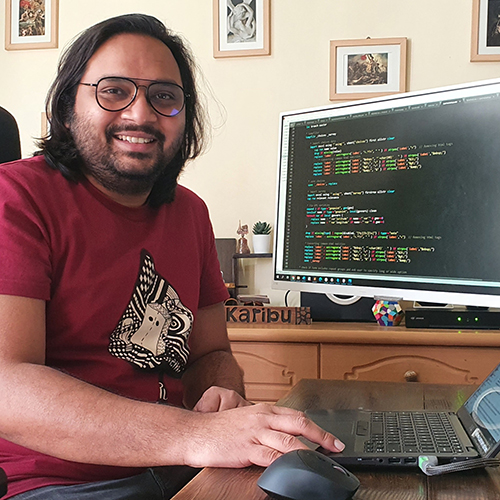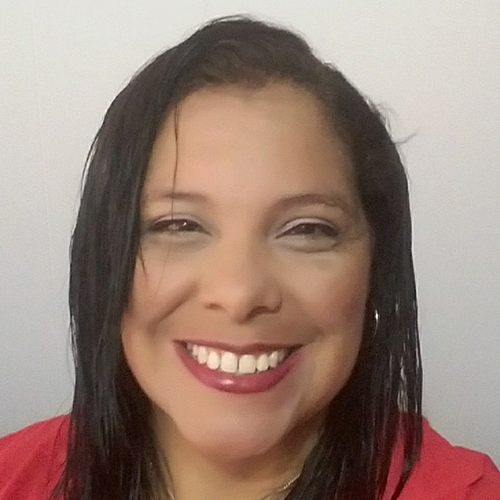The People Behind the Data: 2020 Edition
By Mehrab Ali, Jeffrey Mosenkis, and Aimara Sanchez
Today, on the last day of this tumultuous year, we're sharing the below two-part series on people behind the data at IPA in 2020 (see last year's "people behind the data" post here).
Today is also the last day to make a tax-deductible donation in 2020, so please consider making a gift if you are in a position to do so. Thank you, and we hope you enjoy this series honoring some of the many people who’ve worked tirelessly this year to move forward IPA's mission of a world with more evidence and less poverty.

Mehrab Ali
IPA Bangladesh
Mehrab (pictured at left), who’s been working with IPA Bangladesh for more than 9 years, is one of dozens of data and methods experts who innovated over the last year to help IPA and the hundreds of researchers we work with gather accurate data for policy decisions during the pandemic.
When Bangladesh went into lockdown, Mehrab had the same concerns at home that everybody else has for their family, but an additional one he had was for the thousands of people he and other staff at IPA Bangladesh had been tracking for important studies about refugees, migration, and other pressing problems.
There was a heightened need to understand how people were doing in the face of the crisis, but the means to gather data—through complex face-to-face surveys—was cut off. Mehrab and colleagues had to quickly adapt to phone surveys without previous experience, and they worked and tested new modules rigorously for months.
Mehrab came up with an innovative and fast way to train surveyors in far-flung areas with poor internet connections, and invented a software solution that ensured respondents were followed up with the same number of times and in the sequential order—the “geeky” work that helped us to pivot and innovate in a pandemic.
“The process of asking questions on the phone is different, but before you can do that, just finding the people when you can’t track them down in person is very challenging,” he explained. He came up with an innovative and fast way to train surveyors in far-flung areas with poor internet connections, and invented a software solution that ensured respondents were followed up with the same number of times and in the sequential order—the “geeky” work that helped us to pivot and innovate in a pandemic.

Aimara Sanchez
IPA Colombia
Aimara (pictured at left) works for IPA in Colombia, but isn’t Colombian originally. She’s one of 1.8 million Venezuelans who fled over the border into Colombia. An important question facing many countries around the world that host millions of migrants is how they can be integrated in a way that will benefit them and the local economy. In a bold move in 2018, Colombia granted work permits and access to the healthcare system to Venezuelan migrants in the country, including Aimara.
Having staff like Aimara at IPA is key to our ability to gather high-quality data. Aimara says, “I’m grateful to IPA for giving me the opportunity to work on a project that will have an impact on my community.”
IPA is now working to learn whether documented migrants with access to formal jobs and healthcare fared better, and what happened to them when COVID-19 hit. But studying a migratory and undocumented population is difficult. Aimara helped to build and train a survey team of Venezuelan migrants that knew how to contact and communicate with other migrants around the country. A psychologist also trained Aimara and her colleagues to ask questions in a sensitive manner, while also dealing with emotions that surfaced from their own, often similar, experiences.
Having staff like Aimara at IPA is key to our ability to gather high-quality data. Aimara now manages a team of Venezuelan researchers (some recruited by her) trained by IPA to do this important work. She said, “I’m grateful to IPA for giving me the opportunity to work on a project that will have an impact on my community.”











